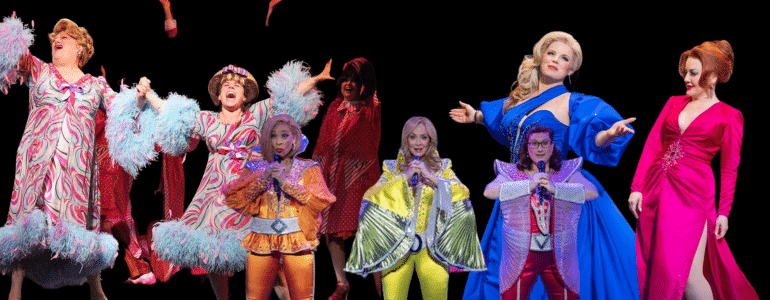Is actor absenteeism at Broadway shows affecting our audience’s attitudes? A study tells all.
This past August, Michael Riedel wrote an article in the Post (in his usual smartly-snarky style), about a plague of absenteeism at West Side Story.
I’ve been concerned about absenteeism for some time, mostly because of its macro effects on our audience. As theater tickets get more pricey, and the economy gets more dicey, audiences are bound to be disappointed if they aren’t getting what they pay for, right?
Right?
The truth is, I didn’t know if I was right.
So I decided to find out.
I called up my friend, Joseph Craig, formerly of Nielsen, and now out on his own at ERM (Entertainment Research and Marketing). Audience research is what Joseph does, day and night, for movies, theater, video games, and more. I call him Dr. Stats. He’s not allowed to talk about the clients that he’s represented for obvious reasons, but I happen to know a bunch of the producers that use him. Let me tell you, some of the shows that he has worked on are so big, you’d wonder why they’d even need research (answer – there is always something to learn).
I told Joseph my concerns and commissioned his company to do a study.
Below is what I believe is the first ever published study on The Effects of Absenteeism On The Broadway Audience.
For the study, ERM did mostly live interviews as well as some internet surveys with “regular theatergoers” both in and out of the tri-state.
I would say that I’m proud to present this survey, but the truth is I’m not.
Why? Well, because, unfortunately, I was right. It is having an effect.
Here is the Executive Summary from the study, which begins with some general and very useful information on how these “regulars” choose shows to see, and ends with something scary.
EXECUTIVE SUMMARY
Overall Response
- In general, respondents are consumers of live entertainment who picked up the habit by “being taken to the theater by a spouse, date or parent”. All try to see the “newest and most buzzed about shows” as early as possible in the run. However, a very high 86% still try to catch up on shows they missed and see them generally within the first two years of the run.
- As far as preferences go, the majority (63%) prefer to see musicals followed by 23% who have no preference over plays or musicals while 14% consider themselves devoted exclusively to plays.
- Interestingly, 67% of those surveyed keep a “list” of shows they haven’t seen and actively look for deals on tickets to these shows.
- It is important to note that almost all of those surveyed are willing to pay full price for shows they really want to see.
- A very high 78% of respondents had seen at least one performance of a show that featured an understudy substituting for a regularly scheduled performer usually in a leading role. Most feel they “heard” the most common reason for an absent performer was an illness or injury that sidelined the usual cast member. Almost all (91%) believe that a missing performer is out for legitimate reasons.
- The newest shows tied with the shows that have been running for over 5 years as the shows with the most missing performers (non-star driven).
- With a few notable exceptions, most feel that stars are more apt to appear on a regular basis in their leading roles.
- The majority of theatergoers (51%) feel the problem has gotten worse over the last 5 years. Most (66%) feel that “younger” or the “less experienced” Broadway performers are more apt to “call in sick” than those with a “career” in the theater.
- When they saw the replacement notice in the Playbill, most (76%) were worried about how it would effect their overall enjoyment of “an expensive evening out” and openly shared with their companion(s) a level of concern about the performance. Among those who brought guests, about a fifth of those surveyed felt like they had to apologize or promise their companion another theater experience if this was “not up to snuff”.
- About a quarter was excited to see what another performer could do when given a chance and was “pleased and happy” with the performance, or “it felt like they were always a part of the production”, and ultimately came away with good things to say about the show and never gave it another thought. Also on a positive note, some felt like they were given an opportunity to see “the future of Broadway performers” when a particularly talented performer “knocked it out of the ballpark”.
- Having said that, the majority (73%) came away frustrated by their experience. They generally felt like they were given a performer who was “under rehearsed” or “struggled to keep up”, or “lacked chemistry” with other performers, or “would never usually be cast in this role”. Consequently, it had an effect on the overall show. Most felt “cheated” or felt in the case of long runs that “the Producers don’t care about what is going on with their shows”.
- Generally, this lead to negative word of mouth on the show. Most quotes stated that they would tell their “inner circle” that “it was not worth full price” or “you should see another show instead” or even in some cases lament how “Broadway producers just care about getting my money and forget about how all this affects my overall enjoyment of a show”.
- An alarming trend we noticed is consumers are starting to be more cautious and aware of shows that have a reputation for absenteeism among leading performers. The fallout is a more conscientious consumer who is becoming more careful with how much money is being “set aside” for attending a Broadway show.
There you have it. In blog and white. Empirical evidence that absenteeism is damaging the future of Broadway.
And why wouldn’t it?
That slip of paper in a Playbill says you’re not getting the Director’s original vision.
Imagine if you went to a famous steak restaurant and they said the beef was coming from a different butcher this week?
Imagine if you went to Six Flags, and Kingda Ka or any of the big roller coasters weren’t running?
You’d be disappointed, right? You’d think twice about going back, wouldn’t you?
Without a doubt, we have a problem.
I’m not saying the problem is with undisciplined actors, or too-difficult choreography, or anything, actually. This isn’t about pointing fingers.
This is about trying to find a solution. Actors Equity and the Producers (especially since we’re the ones being blamed) should come together and find out exactly what the issues are. Is it getting worse? Is part of the problem how we inform our audiences about absences? Do we not have enough understudy rehearsals?
We need to find out the answers. Now that we know how our audience feels, we’ve got to find a way to educate them and change their perception, before they change their habits.
Because no Principal ever calls out of a movie or a video game.
Podcasting
Ken created one of the first Broadway podcasts, recording over 250 episodes over 7 years. It features interviews with A-listers in the theater about how they “made it”, including 2 Pulitzer Prize Winners, 7 Academy Award Winners and 76 Tony Award winners. Notable guests include Pasek & Paul, Kenny Leon, Lynn Ahrens and more.














